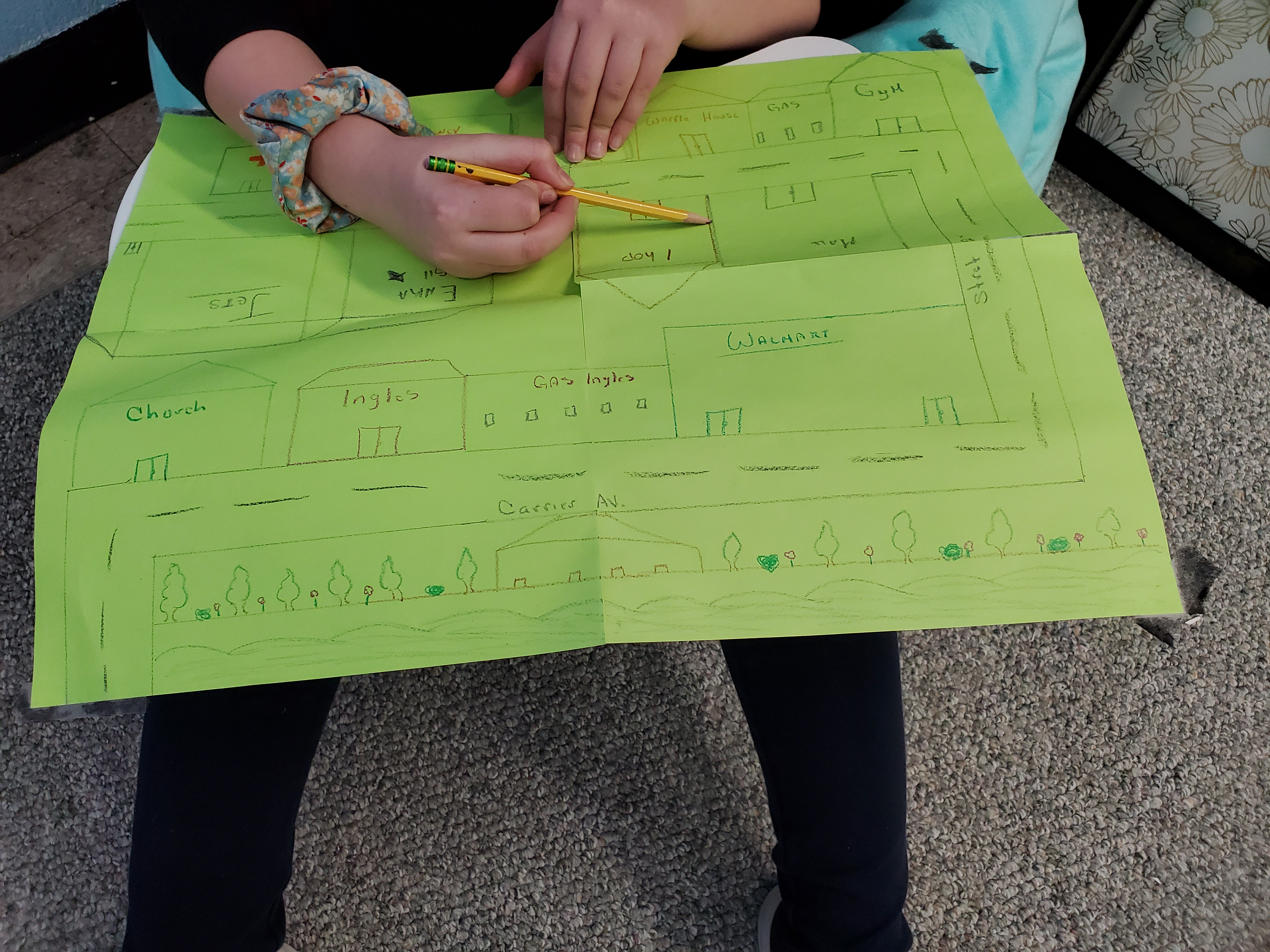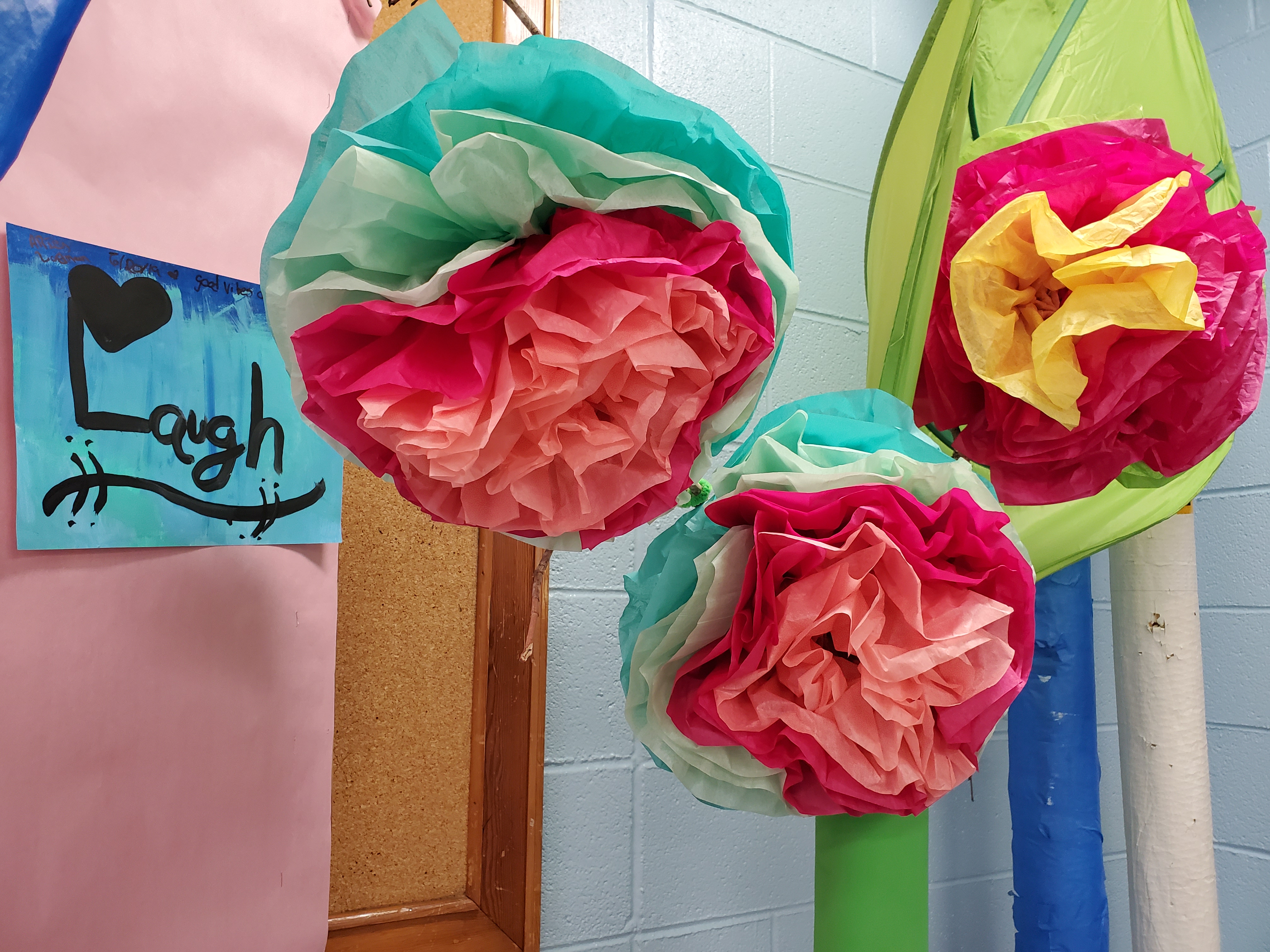
 Support Groups Help Students Thrive at Enka Middle
Support Groups Help Students Thrive at Enka Middle
During the 2016-2017 school year, a student support group started at Enka Middle School after our annual assets and needs assessment process highlighted a much higher demand for mental health supportive services than could be provided by the school-based student services team. We partnered with Access Family Services to help fill those needs, and what started as a pilot program for one small group of students has now grown to serving 200+ students per year across the Enka, Erwin, and Owen school districts.
“The groups are great because we all understand each other and no one is chasing you or talking bad about you,” shares a seventh grade student at Enka Middle, who participated in a student support group focused on stress management. “The last day I told the teacher (the Access therapist leading the group) that it’s like two different worlds. When you’re not at group, people are talking bad about you saying things like you’re weird or you’re fat and when you come to the group, it’s like changing the world. No one can judge you and everyone is nice and understanding.”
Addressing Anger Management, Stress, and Making Friends...
Student support groups address topics such as anger management, stress management, changing families and moving through divorce, making friends, organization, and other topics guided by surveying student behavior and chosen by students needs. Enka Middle School Counselors Kate Bradford and Michelle Butler meet with students early in the year to further hone in on those needs and offer up the 6-week group topics to students to gauge their interest.
 “There is a large and growing need for these groups,” shares Seventh Grade School Counselor Kate Bradford. “We divide the students by grade and by need and take note of students who are, for instance, having a lot of trouble with anxiety because they’re missing school a lot or wanting to call home or needing to see one of us regularly during the school day. We prioritize them first.”
“There is a large and growing need for these groups,” shares Seventh Grade School Counselor Kate Bradford. “We divide the students by grade and by need and take note of students who are, for instance, having a lot of trouble with anxiety because they’re missing school a lot or wanting to call home or needing to see one of us regularly during the school day. We prioritize them first.”
Bradford says around 160 students requested groups this school year, with anxiety, anger management, and making friends being the most popular topics. Each counselor, as well as the school social worker Molly Pittman, facilitates two groups and Access Family Services, through a contract with United Way ABC, manages 6 groups per school year, totaling 12 groups per calendar year, with 8-10 students in each. The students meet in a colorful room with bean bag chairs and inspiring statements on the wall, which was recently redecorated during our annual Days of Impact by Candler-based business Jacob Holm Industries.
”The school-based group model helps reduce stigma among the students, allows the therapists to look at patterns of interaction, and helps guide a discussion among the students so they’re talking about what they’re experiencing at home and at school together and really learning from one another,” shares Access Regional Director Victoria Reichard.
Support Groups Growth Through The Years...
- 2016-2017: Pilot year at Enka Middle, focused on newcomer Spanish-speaking students - 6 total students
- 2017-2018: Expanded focus to support groups for any students at Enka Middle and Enka Intermediate - 50+ students
- 2018-2019: Expanded to Owen and Erwin districts - 175 students
- 2019-2020: Continue in Enka, Erwin and Owen districts - 200+ students
Why Student Support Groups are Important
You might be familiar with Maslow’s Hierarchy of Needs, a motivational theory in psychology showing the hierarchical five tiers of human needs, starting with Physiological Needs (Air, Water, Food, Shelter, Sleep, etc.) and moving up to Safety, Love and Belonging, Esteem, and Self Actualization.
“A short term support group helps students learn coping strategies more quickly so that they’re able to be in the classroom more often,” shares Bradford. “Yes, it’s the hierarchy of needs in action,” adds Butler. “They need these skills and support systems to be able to learn because they can’t access that part of their brain if these other needs aren’t being met.”
United Way Community School Coordinator Ginny Spencer says some students don’t want to be associated with counseling. We can all remember being 13, right? Many students simply won’t go see a counselor because that’s what they’re called and they don’t want to be associated with it, yet they’ll come into a group space and share everything they would share with a counselor, simply because the people leading it are not called counselors.
“When the group happens, I love it because there are two teachers (therapists) who understand you and they have the time to talk to you, because in class teachers don’t always have time to talk to each student. But in a small group, the teachers can listen and ask about what happened in the day or ask what you can do better,” shares a seventh grade student who attends support group and Homework Diners regularly. “In school, people will say you are bad, but the teacher in the group will help you out to understand when people say you smell bad or you’re short or you’re weird or fat, so you know that you’re not. Other people really don’t mean it and you have to go on.”
There are more than therapeutic groups being offered at the school too. While the Enka Jets take their sports teams seriously, not all students are athletic or involved in them, which is why Eudy started both a Drama Club and Student Leadership Group, The Jetsetters. Reichard, from Access Family Services, sings the praises of having Spencer as a liaison--”someone at the school who understands the school dynamics, is there talking with the teachers and administrators and then working in partnership with us, connecting us all, is just so necessary.” Eighth grade counselor Butler adds that “Ginny as our Community School Coordinator truly helps us coordinate all of that. It is a lot of people, moving pieces, scheduling times, places and people. If we didn’t have that, it wouldn’t be happening.”
Get Involved in our Community Schools!
Donate to help us continue and grow this work in Buncombe County
While schools are currently closed for safety precautions in response to COVID-19, we hope you'll check back for future Volunteer Opportunities in our Community Schools through our volunteer center Hands On Asheville-Buncombe.
